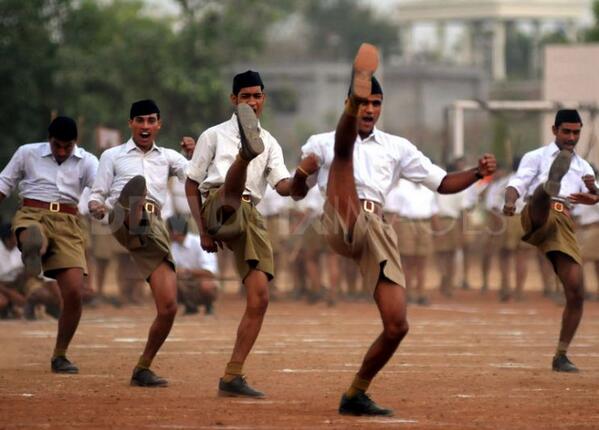
Year after Akhlaq’s lynching: Cow vigilantes triumph, justice lurches
A year has passed since Mohammad Akhlaq, a Muslim man in his fifties, was lynched in Dadri, Uttar Pradesh. A cow vigilante mob had accused him of slaughtering a cow on the occasion of Eid al-Adha. The allegation provided them with an opportunity to lynch Akhlaq. Though Dadri’s lynching grabbed international media attention, the culprits remain at large.
Akhlaq’s death has exposed India’s systemic bias against Muslims in delivering justice. It has also prompted a series of similar cow vigilante attacks across the country, particularly affecting Muslim and Dalit communities.
Justice lurches in darkness
Chief Minister Akhilesh Yadav, whose Samajwadi Party claims to represent Uttar Pradesh’s Muslim population, had promised justice following Akhlaq’s lynching. The promises have remained unfulfilled.
This reflects a broader pattern. When it comes to delivering justice to Muslims, India exhibits significant gaps between stated commitment and actual delivery. The gap between words and deed runs deep.
Over the past year, the situation has shifted dramatically. Akhlaq and his family have moved from being victims of mob violence to being suspects accused of cow slaughtering. This accusation, in contemporary India, justifies violence against minority communities, Dalits and other marginal populations.
Meat recovered from Akhlaq’s home underwent forensic examination. Initial findings identified it as mutton. As state elections approached, the classification changed to bovine origin. The reversal coincided with political pressure on the Samajwadi Party government.
Muslims in Uttar Pradesh relied on Yadav’s government for protection from majority violence. Yet during the 2013 Muzaffarnagar riots, the Samajwadi Party government remained inactive. The two years preceding Akhlaq’s death saw escalating communal tensions without effective state intervention.
Experts believe a political coordination between the Samajwadi Party and the Bharatiya Janata Party (BJP) has complicated justice. Both parties benefited from voter polarisation in Uttar Pradesh. This shared interest undermined efforts to prosecute those responsible for Akhlaq’s death. Justice remained elusive for Akhlaq and similarly situated victims.
Akhlaq’s lynching aftermath: Cow vigilantes and state unite
The consequences of Akhlaq’s lynching extended far beyond Dadri.
When Ravi, one of the accused, died in detention in October, his body was draped in the national flag.
BJP leader Mahesh Sharma, a key figure in organising the mob, called the deceased a “patriot”.
Sangeet Som, a Member of the Parliament, and others conducted rallies in Bisada village. According to reports, community members openly threatened Muslim residents while police remained present.
The Uttar Pradesh government, led by Yadav, took a surprising turn by filing criminal complaints against Akhlaq’s family. This reversal suggested coordination between state authorities and those opposed to accountability for the lynching.
The Samajwadi Party’s actions appeared designed to undermine the Bahujan Samaj Party, which threatened to consolidate Muslim and backward caste votes.
Cow vigilante violence has spread significantly since Akhlaq’s death. Attacks in states ruled by the BJP, and those where the party seeks power, have increased markedly. Karnataka, Telangana and Uttar Pradesh have experienced particular escalation. These attacks have targeted both Muslims and Dalits, creating violence across multiple marginalised communities.
The violence has prompted strong reactions. In Gujarat, Prime Minister Narendra Modi‘s home state, Dalit communities expressed outrage at attacks by cow vigilante groups. Modi responded by characterising some vigilantes as rogue elements, distinguishing between what he termed legitimate and illegitimate gau rakshaks. Yet state protection for suspected perpetrators has generally remained in place.
Escalating violence and institutional failure
The year following Akhlaq’s lynching witnessed intensifying mob violence across India. Attacks accelerated dramatically compared with pre-2014 levels.
According to the Rashtriya Swayamsevak Sangh (RSS) chief Mohan Bhagwat, cow vigilantes uphold the law.
This positioning, by the organisation that’s called the fountainhead of Hindutva globally, suggests potential government tolerance or tacit endorsement of such groups.
A youth named Ansari from Jamtara was arrested by Jharkhand authorities for remarks about beef consumption. He died in police custody under disputed circumstances. An officer involved was suspended rather than prosecuted. His death exemplifies the pattern of state inaction regarding vigilante violence and custodial deaths.
Cow vigilante violence has disproportionately affected India’s most marginal populations. Muslim communities face economic pressure as slaughtering restrictions tighten under Modi. Dalits suffer violence from upper-caste groups emboldened by perceived state tolerance. Christians experience harassment amid majoritarian campaigns fuelled by the RSS. These communities occupy increasingly precarious positions within Indian society.
A Maratha political movement has emerged in Maharashtra, demanding restrictions on reservations for scheduled castes and tribes. The movement has mobilised against anti-discrimination protections established through decades of social struggle. Such movements reflect broader efforts to consolidate upper-caste economic and political advantage at the expense of historically excluded communities.
The convergence of these pressures has created a difficult environment for India’s minorities and marginalised populations. Effective state protection has diminished. Institutional mechanisms for accountability have weakened. The legal system, traditionally biased toward dominant castes and communities, has become further compromised by political pressures.
Meaningful change requires sustained democratic mobilisation. Progressive forces must construct broad coalitions defending constitutional secularism and equal citizenship. Without such movements, vulnerable communities will face continued vulnerability under the present political arrangements.
An avid reader and a merciless political analyst. When not writing then either reading something, debating something or sipping espresso with a dash of cream. Street photographer. Tweets as @la_muckraker

